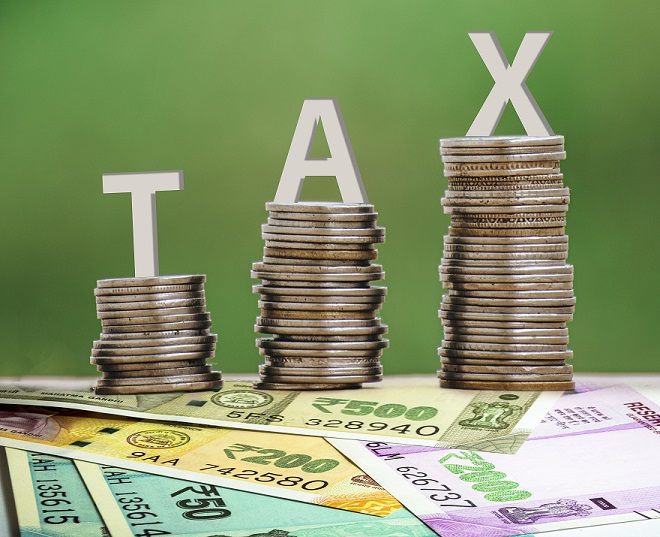
Humanity is going through one of the most difficult times in modern history. Thousands of precious lives have been lost and lakhs are suffering from the global pandemic. The hit to the global economy is severe with most parts of the world in lockdown.
India’s orderly response
India has been managing this crisis very thoughtfully, in a step-by- step manner. We started with the Janata Curfew on 21st March, followed by a 21-day complete lockdown from midnight of 24th March. Importantly, we went for a complete lockdown much before many other countries ravaged by the pandemic did. The lockdown was followed by a massive fiscal package of Rs 174000 crores, which was more a humanitarian package to help the poor and vulnerable, than a stimulus to boost the economy. The very next day, on 27th March, RBI announced the most comprehensive package in its history to ease the credit markets, boost the economy and to bring relief to borrowers.
The fiscal package
The comprehensive fiscal package from the Centre can bring great relief to those impacted by the lockdown. The supply of additional food grains free to all ration cardholders will ensure that nobody goes hungry. Cash transfer to Jandhan accounts, though limited in amount, is a timely help. The revision in MGNREGA wages though desirable, will not be of much help in lockdown times. Front-loading of PM Kisan transfer and measures to help the elderly and vulnerable women are laudable. Reaching help to the millions of very poor in India is a Herculean task; there are thousands who are homeless, have no bank accounts and none to support. The women and elderly in this segment are highly vulnerable. The civil society and NGOs, who are already doing a great job, can deliver effective help to such segments. For the well-off segments, this is the time for charity.
Much of the action is at the state level. Some states are doing a great pro-active job in crisis management. A major deficiency of the Centre’s fiscal package is that there is no meaningful transfer of funds to states.
RBI’s Bazooka
The RBI, rising to the occasion, delivered a better than expected response. The massive cut in repo and reverse repo rates, by 75 and 90 basis points respectively will bring down the cost of credit to borrowers and the 1 percent CRR cut will release Rs 1.37 lakh crores into the banking system. LTRO of Rs 1 lakh crores enabling banks to buy corporate bonds and CPs will facilitate easy credit to corporates and ease the pressure on lending. The moratorium of three months on term loans is a big relief to borrowers in this time of stress. These measures aimed at augmenting liquidity, improving monetary transmission and relaxing repayment pressures will have some benign effects on the economy.
Global economy will slip into recession
With most parts of the world in lockdown, most economic activity has come to a grinding halt. This is not a slowdown in economic activity; this is almost a total shut down of economic activity. Recession is inevitable. In the last serious global recession of 2008-09, the real economy was working even though the financial sector was paralyzed in the developed world. Now, it’s different. Most parts of the real economy are not working. The only question now is: how prolonged and intense the recession would be? That would depend on biology rather than economics.
Biology would dictate economics
Monetary stimulus will be largely ineffective in a recession, triggered by collapse in demand due to fear, aggravated by complete lockdown. Fiscal measures announced are more a humanitarian effort to mitigate the sufferings caused by the lockdown than a stimulus package to revive the economy. Therefore, the key to economic recovery will be biology rather than economics.
If covid-19 is contained and the numbers of new infections and deaths are brought down- as China, South Korea and Singapore did -economic activity is likely to resume and the recession would be short-lived. If, unfortunately, the virus were to spread exponentially, the consequences would be devastating with an intense prolonged recession. Therefore, biology will dictate economics, going forward.
Recovery? Yes. Timing unpredictable.
This epidemic too, like all previous epidemics, will also come to an end and the global economy will recover. But when the epidemic will end and when global economic recovery will begin is difficult to predict. Perhaps in 2 quarters. The recovery in markets is likely to be swift and sharp. Let’s hope for the best.










In this bear market, considering that the outcome is to be decided by Biology, and also because business is largely going digital, guess the following sector should benefit – pharma, health care, IT & FMCG. Would like a revert on the above observations …..
Yes pharma, healthcare, FMCG, are safe.IT would be a good place to hide. Apart from these, telecom will do well due to increased use of data thanks to work from home. Gold loan companies are likely to do well once the lockdown is lifted. Even though the financial sector is risky, top quality private banks will do well since now they can borrow at 4.4 % ( repo) and easily lend to highly rated borrowers at 7.65 % making a clean margin of around 3 %.
Once the situation improves, paints and adhesives will reap high profits since their raw material cost will come down drastically due to crude crash.
Yes pharma, healthcare, FMCG, are safe. IT would be a good place to hide. Apart from these, telecom will do well due to increased use of data thanks to work from home. Gold loan companies are likely to do well once the lockdown is lifted. Even though the financial sector is risky, top quality private banks will do well since now they can borrow at 4.4 % ( repo) and easily lend to highly rated borrowers at 7.65 % making a clean margin of around 3 %.
Once the situation improves, paints and adhesives will reap high profits since their raw material cost will come down drastically due to crude crash.